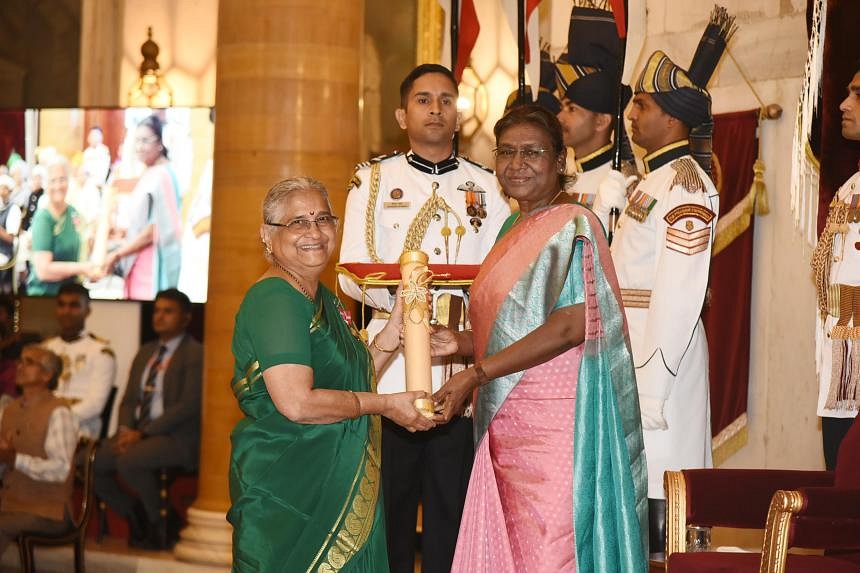
In other interviews, Mrs Murty revealed that she has not bought a new sari in more than two decades.
Her comments on vegetarianism on popular food show Khaane Mein Kya Hai?, or What Is There For Food?, have also attracted criticism.
“What I am scared of is that the same spoon will be used for both vegetarian and non-vegetarian food. It weighs on my mind a lot! Hence, when we go out, I only search for vegetarian restaurants. Or, I carry one bag full of eatables,” she said, explaining that this included poha, or flattened rice.
While many vegetarian Indians probably related to her comments, they triggered a debate on vegetarianism and jokes about how Mrs Murty carried spoons from home while travelling.
Her comments added to an ongoing debate on whether India should become a vegetarian country amid vigilante action by Hindu right-wing nationalists opposed to the eating of beef.
India, while still having the largest number of vegetarians in the world, has a non-vegetarian majority, according to surveys.
Critics of Mrs Murty said that India does not need a billionaire’s wife to speak about simplicity.
“She is being trolled not because of simplicity. She is being trolled because people are sick of someone who is not representative of Indians and a billionaire preaching piety and purity,” author and journalist Swati Chaturvedi told The Straits Times.
But author Chitra Banerjee Divakaruni, who wrote a book about Mrs Murty and her husband, said Mrs Murty was misunderstood, and that she was simply espousing the values she had been brought up with.
“It’s also because people don’t value some of the values that the (couple) were both brought up with, like the value of living simply. They just imbibed that from their grandparents,” said Ms Divakaruni, who interviewed the couple at length for her book titled An Uncommon Love: The Early Life Of Sudha And Narayana Murthy.
The author had studied in graduate school with Mrs Murty’s younger brother Shrinivas R. Kulkarni, an astronomer and professor at the California Institute of Technology, and has known the family for decades.
“We don’t live in a simple age right now. India is a very aspirational society. All of these are good things, and along with aspiration comes the show of aspiration. Ostentation is seen as a good thing. You prove to others that you have made it. But not everyone feels that way,” said Ms Divakaruni.




















